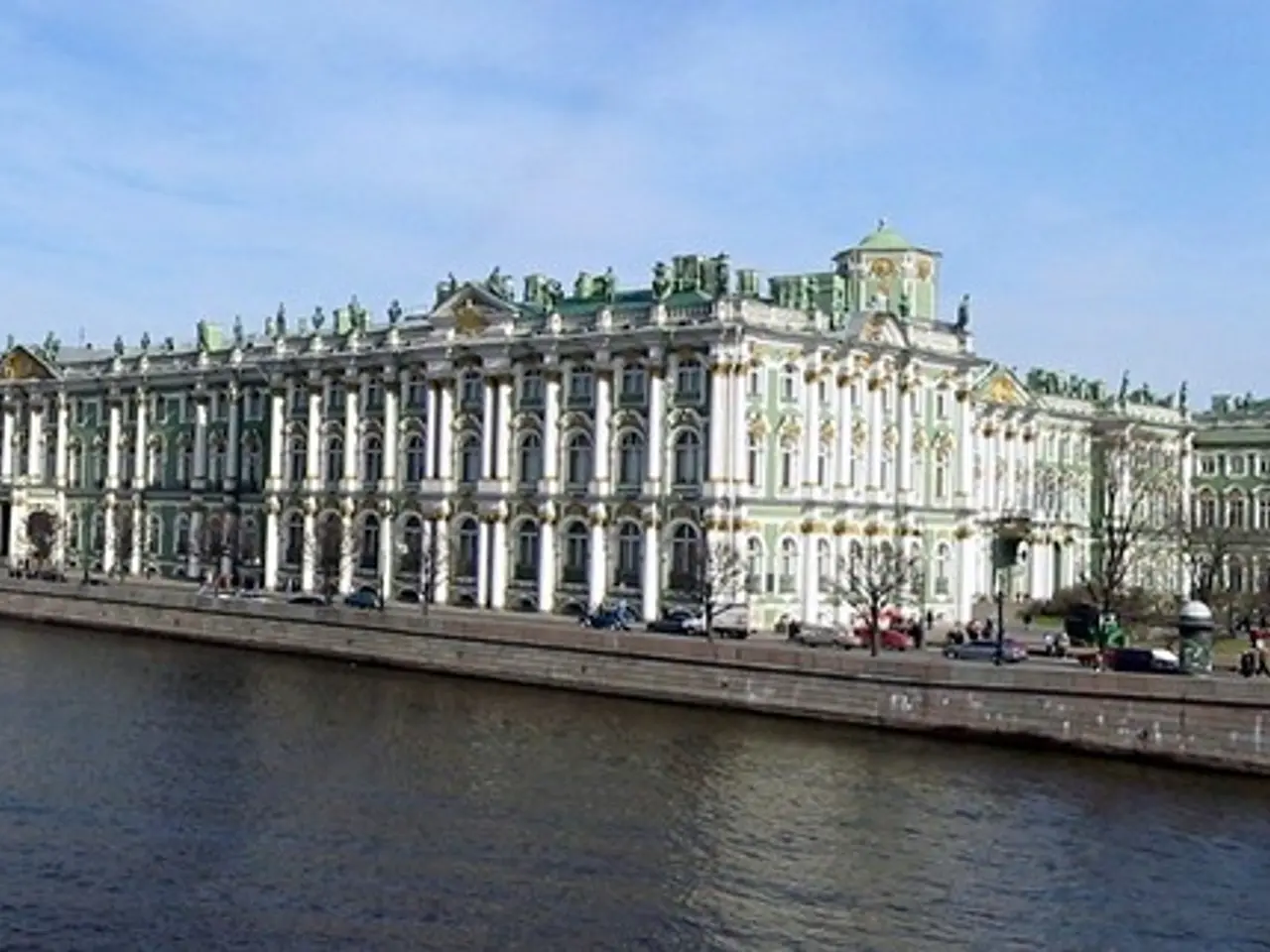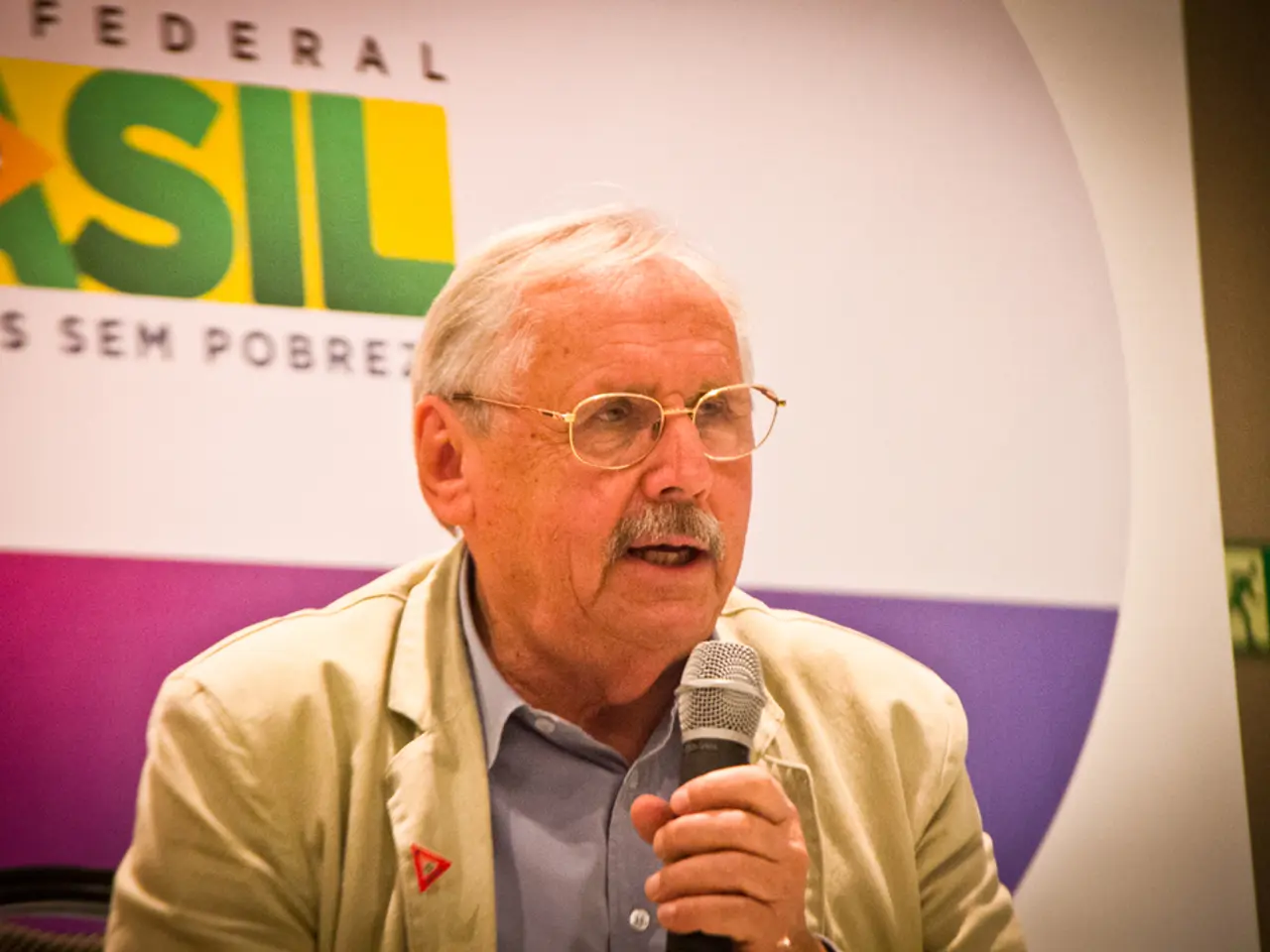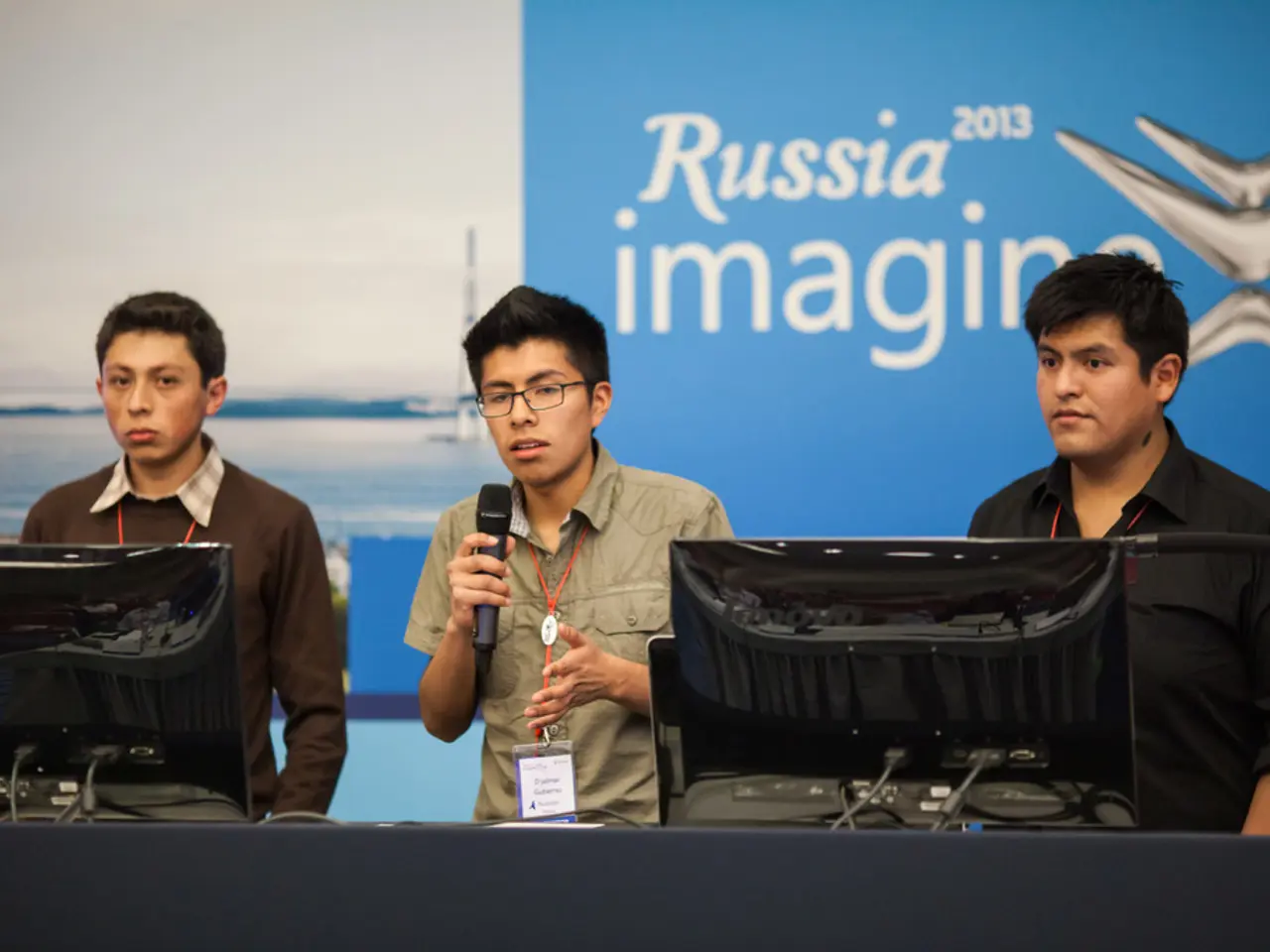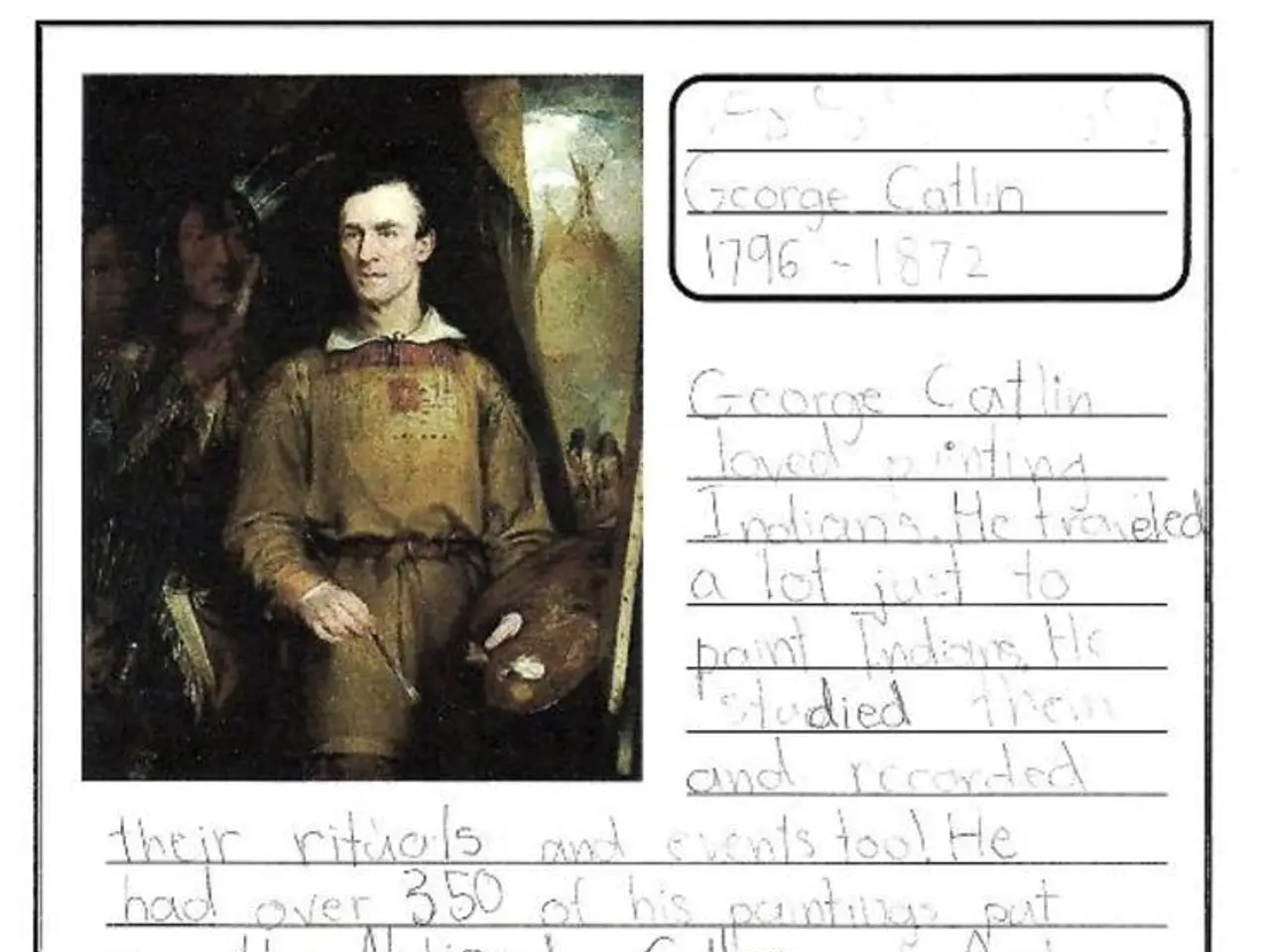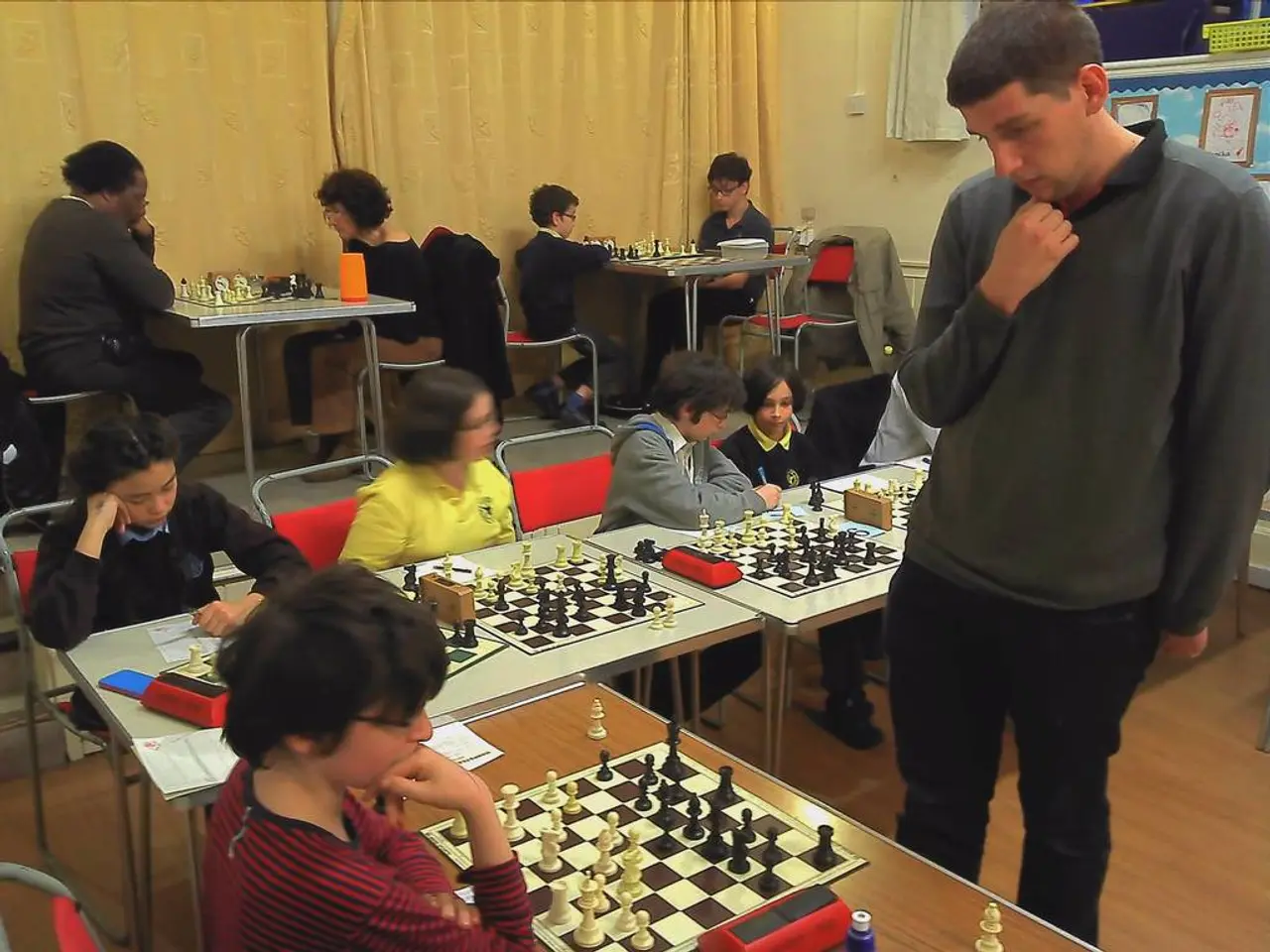Strengthening Parliamentary Rule in Mongolia
Mongolia, a country that emerged from a peaceful democratic revolution at the end of the 1980s, has once again shown its commitment to democratic principles. In recent events, the political landscape has been reshaped, with peaceful protests playing a significant role in shaping Mongolia's constitutional culture.
On June 2, 2025, Prime Minister Luvsannamsrain Oyun-Erdene faced a vote of confidence, but fell short of the required majority with 44 votes in favor and 38 against. This political crisis led to his dismissal from office on June 13, 2025, when Gombojavyn Zandanshatar was appointed as the new Prime Minister by the President.
The crisis was sparked by youth-led peaceful protests in Sukhbaatar Square in May 2025, reacting to the Government's handling of corruption and a perceived lack of transparency. These protests culminated in the Government’s resignation, marking a significant moment in Mongolia’s constitutional development.
Historically, peaceful mass demonstrations have been foundational in Mongolia's relatively rare and successful transition from a Soviet satellite to a multi-party democracy in Central Asia. The resilience of this democratic culture, characterised by regular, peaceful transfers of power and robust civic participation, has underpinned the significance of peaceful protests today as expressions of democratic values and tools for constitutional development.
Mongolia's 1992 Constitution established a parliamentary republic and the protection of fundamental rights. Since then, its political life has been dominated by two major parties - the Mongolian People's Party (MPP) and the Democratic Party (DP). However, with the departure of the Democratic Party from the governing coalition, Mongolia now has a more clearly defined parliamentary opposition.
The growing role of social media among young, globally connected citizens in Mongolia has increased public scrutiny and demands for transparency. This reflects a broader shift in Mongolian constitutional culture, with the use of constitutional mechanisms to challenge or remove a government standing in contrast to the authoritarian practices of the socialist regime.
The active role of civil society in reclaiming the Constitution is evidenced by the increasing use of actio popularis before the Constitutional Court. A few months ago, at the request of the President of the Court, the Venice Commission published an opinion on the Draft Law on the Constitutional Court.
In 2023, a constitutional amendment increased the number of parliamentary seats from 76 to 126 to improve pluralistic representation. The Prime Minister must be proposed to the State Great Khural within five days of legislative elections, following consultation with the President. The Government of Mongolia is composed of a Prime Minister and a cabinet, nominated by the political party that holds the majority of seats in the State Great Khural following general elections.
As Mongolia moves forward, it is crucial to maintain the robust civic participation and transparency that have been demonstrated through peaceful protests. While Mongolia itself preserves these rights more robustly, ongoing vigilance is necessary to prevent potential erosion of these freedoms. The emergence of a new constitutional culture in Mongolia, one marked by a growing reliance on the Court, which is increasingly perceived as the only effective check on the entrenched power of political parties, is a testament to the country's commitment to democratic values.
[1] Source 1 [2] Source 2 [3] Source 3 [4] Source 4
- The Constitutional Court in Mongolia, a pillar of the country's commitment to constitutional law and democratic principles, has seen an increase in the use of actio popularis, a testament to the growing role of civil society.
- With the increasing influence of young, globally connected citizens on policy-and-legislation through social media and their demands for transparency, Mongolia's constitutional culture is evolving, reflecting a robust protection of fundamental rights and an active exercise of fundamental democracy.
- The dismissal of Prime Minister Luvsannamsrain Oyun-Erdene in June 2025, as a result of youth-led protests in Sukhbaatar Square, underscores the significance of peaceful protests in Mongolia's political landscape, serving as a tool for constitutional development and a safeguard for the protection of democracy and fundamental rights.
